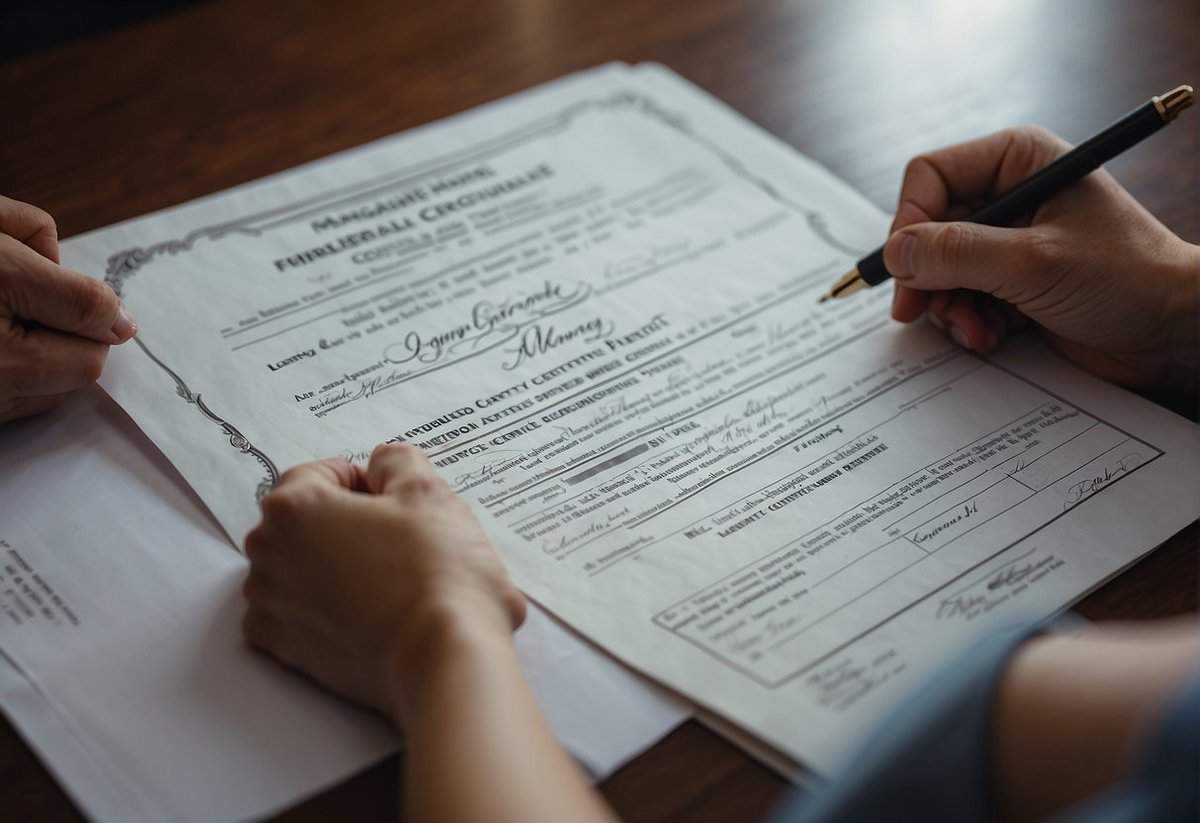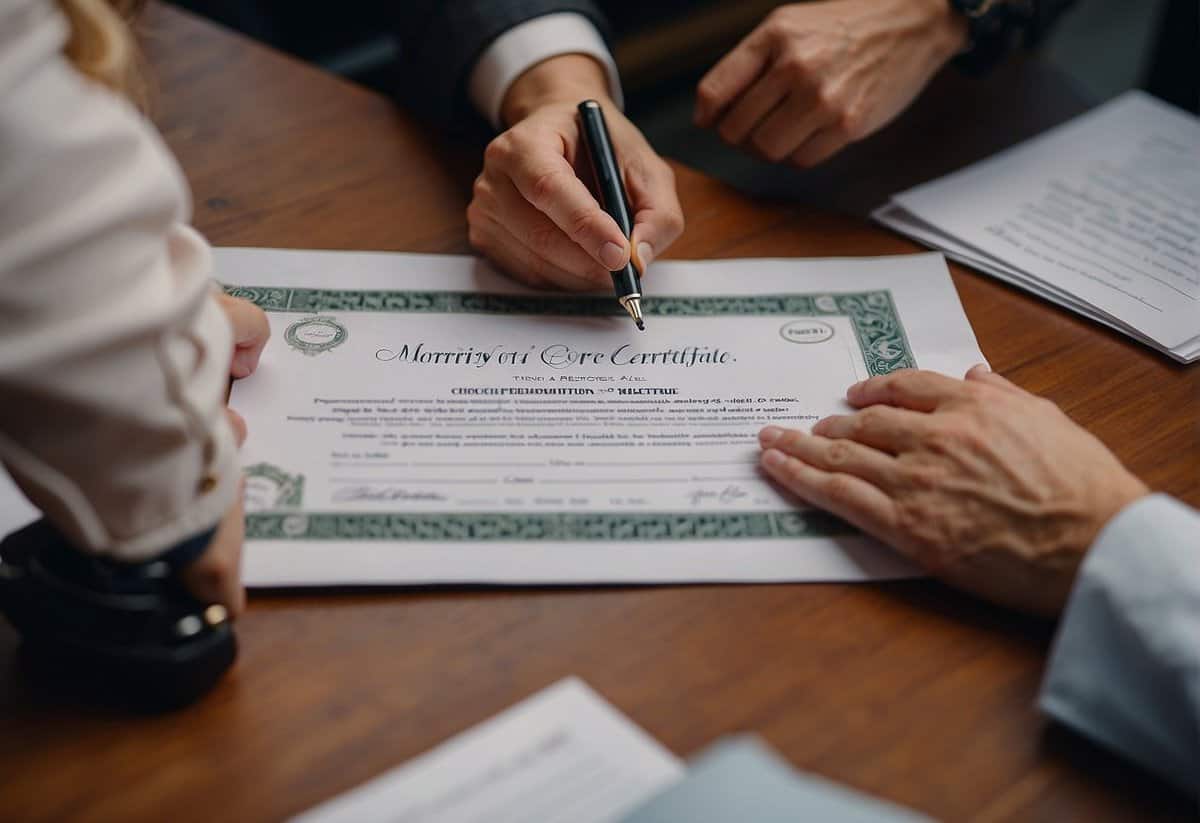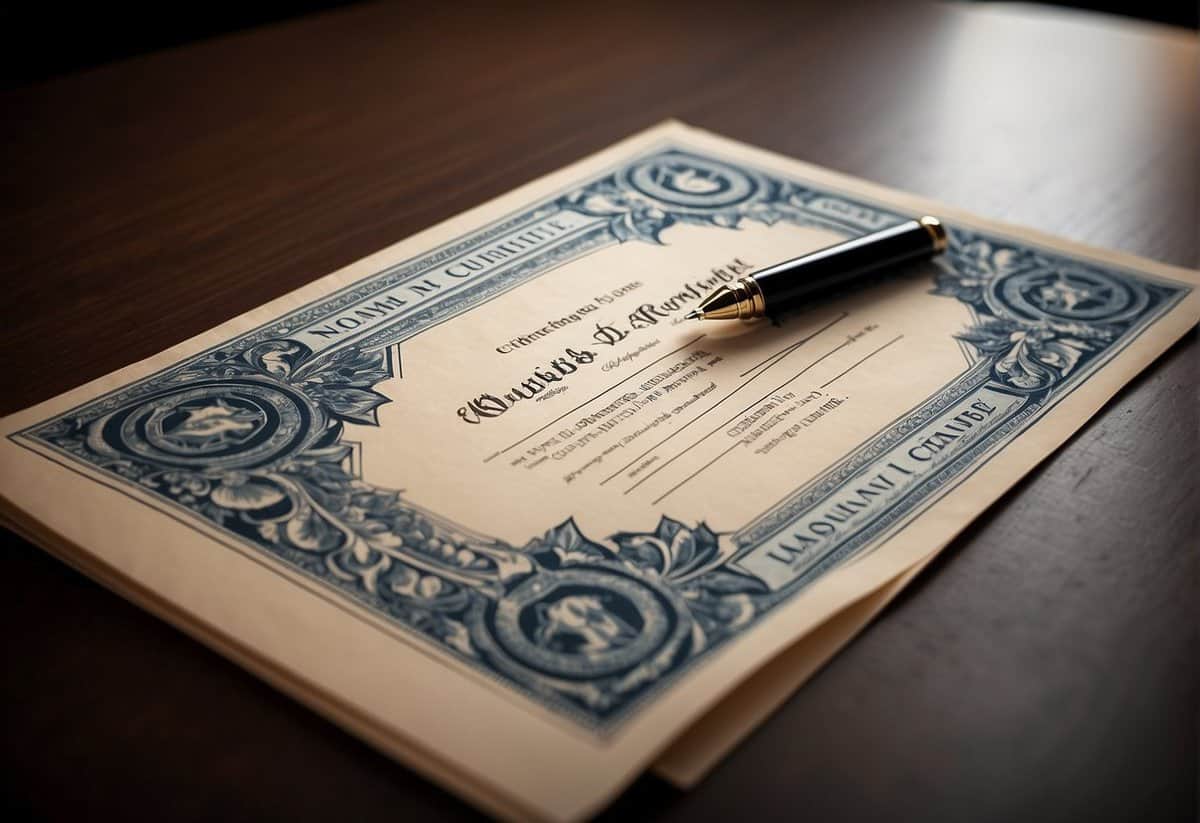Can You Get Married Without Witnesses in the UK? Understanding the Legal Requirements
When planning your wedding in the UK, a common question you might have is whether it is possible to get married without witnesses. According to UK law, witnesses play a crucial role in the legality of a marriage. For a marriage to be legally recognized, not only must the couple and the officiant be present, but at least two witnesses must also attend the ceremony. These witnesses are required to observe the marriage and sign the marriage register, providing an official record that the event took place.

The need for witnesses is a part of the legal requirements for marriage in the UK, ensuring that the marriage ceremony is performed according to British law. This rule applies regardless of whether the ceremony is a civil or religious one. Although the idea of eloping or having a private ceremony might sound appealing, the absence of witnesses would mean the marriage is not legally binding in the UK.
Key Takeaways
- Witnesses are required for a marriage to be legally recognized in the UK.
- The legal requirement includes the need for two witnesses to sign the marriage register.
- The rule applies to both civil and religious marriage ceremonies.
Legal Requirements for Marriage in the UK

To marry in the UK, you must comply with specific legal requirements, ensuring your union is recognized and legally binding. Here’s a concise look at what you need to know before you say “I do”.
Legal Capacity to Marry
You must be at least 16 years old to marry, but if you’re under 18, parental consent is necessary in England, Wales, and Northern Ireland. Furthermore, you and your partner must be single, widowed, or have a final order, such as a decree absolute if divorced, or a death certificate of a previous spouse, establishing your legal capacity to enter into a marriage.
Required Documentation
When planning to marry, be prepared to provide proof of name, proof of age, proof of nationality, and proof of address to satisfy UK law. You may also need to present a valid visa if you’re from outside the UK or Ireland, which could be subject to visa requirements and visa fees.
Giving Notice at the Register Office
Giving notice is a prerequisite for a legally binding ceremony; this involves you and your partner attending your local register office and submitting a notice of marriage. This public declaration must be given at least 29 days before the wedding and includes details like your names, age, and where you plan to marry. It’s also the time when you’ll pay any fees for your marriage ceremony to the registrar or officiant.
Please note: Despite different practices around the world, in the UK, your ceremony must include at least two witnesses to sign the marriage register, and thereafter, you’ll receive a marriage certificate, confirming your union under UK law.
Types of Marriage Ceremonies in the UK

In the UK, you have the flexibility to choose from several types of marriage ceremonies, each with its own set of requirements. Whether you opt for a civil ceremony, a traditional religious wedding, or an alternative ceremony, you’ll need at least two witnesses and to follow legal protocols.
Civil Ceremonies
Civil ceremonies are secular events conducted by a registrar, and they can take place at an approved venue like a hotel or a stately home, or at a register office in England and Wales. You’ll need to book a registrar, who will make sure your civil partnership or marriage is recorded in the marriage register. Civil ceremonies allow for a personalised set of vows, provided they are free from religious connotations.
Key points for civil ceremonies:
- Requires at least two witnesses
- Booking a registrar is essential
- Non-religious vows are permitted
Religious Weddings
If you prefer to incorporate your faith into the ceremony, religious weddings in the UK provide this opportunity. The Church of England and Anglican Church allow for marriage within a parish church, following the proclamation of banns—a formal announcement of your intent to marry. For Jewish and Quaker ceremonies, the requirements are more lenient, and you don’t necessarily need a registered religious building—a ceremony under a chuppah or in a Quaker meeting is sufficient. Roman Catholic weddings, similar to Anglican ones, typically require the ceremony to be held in a registered religious building and officiated by a priest.
Key points for religious weddings:
- Varied requirements based on religion
- Most require a registered religious building
- Some need a formal announcement of banns
Alternative Wedding Ceremonies
For those looking to step away from tradition, alternative wedding ceremonies offer a way to tailor your special day uniquely. These can include destination weddings, handfasting, or a blessing ceremony after a civil marriage. It’s critical to note that while alternative ceremonies can reflect personal values and wedding traditions, they may not always be legally binding without a civil ceremony or partnership. You’ll need to ensure all legal paperwork and permissions are completed in accordance with UK law to formalize your union.
Key points for alternative ceremonies:
- May not be legally binding on their own
- Can reflect personal values and traditions
- Require legal paperwork for formal recognition
Considerations for a UK Wedding

When planning your big day in the United Kingdom, you’ll need to think about several factors, from the legalities to the unique traditions. Here are some key points:
Legal Requirements: Your marriage must be witnessed by at least two people. Also, ensure you have the mental capacity to marry and that if you’re a foreign national from outside the European Economic Area, you meet immigration rules.
Venues: Wedding venues in the UK can range from destination wedding locations to local spots. Remember, religious venues must be registered for your marriage to be legally recognized.
Budgeting: Wedding costs can quickly add up. It’s wise to use a currency converter to stay on top of expenses if you’re paying from abroad, and outline your wedding budget early on. The average cost of a wedding varies widely across the UK.
Traditions: You might incorporate a luckenbooth brooch as a good luck charm or have bagpipes play to honor cultural heritage. Wedding favors and a receiving line are common, but optional.
Logistics: Consider music licensing if you’re making your own playlist, and address family politics delicately when drafting your guest list. If you wish to elope, understand that the UK has specific rules regarding the publicity of weddings.
Post-Wedding: Know the procedure for obtaining your marriage certificate after signing the register and understand the laws in the event of a divorce.
These elements, along with personal touches like language choices or whether to have readings, will make your wedding uniquely yours. Happy planning!
Frequently Asked Questions

Before you plan your big day in the UK, it’s important to get familiar with the legalities, including the need for witnesses, important documents, and potential costs. Here’s what you need to know:
What are the essential documents required for a UK marriage?
In the UK, you must have a valid form of ID (like a passport), proof of residence, and a decree absolute if divorced. Also, you’ll need to give notice of your intent to marry at your local register office.
What are the minimum requirements for a quick marriage in the UK?
For a quick marriage, you must have two witnesses and meet the required legal age of 18. If you’re under 18, parental permission is needed. Furthermore, you should give at least 28 full days’ notice to the register office before the ceremony.
Are there specific document requirements for foreigners wishing to marry in the UK?
Foreigners wishing to marry in the UK must have a valid visa that allows marriage and should provide evidence of national insurance numbers, passports, and proof of address, among other required documents.
What are the typical costs associated with a registry office wedding in the UK?
The costs may vary, but a registry office wedding typically involves a fee for giving notice, and a fee for the marriage certificate. Additionally, the cost of hiring a registrar for the ceremony must be considered.
What identification do wedding witnesses need to provide in the UK?
Wedding witnesses in the UK need to provide a valid form of identification, such as a passport or driving license, on the day of the wedding to prove their identity.
What role do wedding witnesses play in UK ceremonies?
The role of wedding witnesses is to observe the marriage, sign the marriage register, and certify that the marriage is legally binding. Their presence is crucial as they help to formalize the union.

